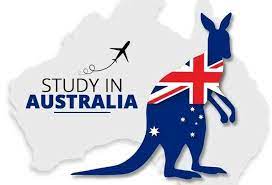How to Choose the Right Study Abroad Program for You as an Indian Student
How to Choose the Right Study Abroad Program for You as an Indian Student
Choosing the right study abroad program can be overwhelming for Indian students. With so many options globally, it's crucial to pick a destination and program that align with your academic interests, career goals, and financial capacity. Here's a guide to help you navigate the process.
Understand Your Career Goals
Before selecting a program, think about where you see yourself professionally. Do you aim to work abroad or return to India? The course you choose should have global recognition, employability, and offer the right skills to meet your goals.
Top Destinations to Consider
Here’s a breakdown of popular study destinations for Indian students, including potential employment opportunities and expected salaries:
United Kingdom (UK)
Popular Courses: Business, Engineering, Healthcare, Computer Science
Employment: The UK offers a post-study work visa (PSW) for up to 2 years. Graduates can find opportunities in finance, IT, healthcare, and marketing.
Expected Salary: Fresh graduates can expect salaries ranging from £25,000–£35,000 annually.
United States (USA)
Popular Courses: STEM fields, Business, Healthcare, Social Sciences
Employment: With Optional Practical Training (OPT) opportunities, students can work up to 3 years in the US post-graduation.
Expected Salary: Starting salaries for entry-level positions range from $50,000 to $70,000 per year.
Canada
Popular Courses: Data Science, Engineering, Healthcare, Environmental Science
Employment: The Post-Graduation Work Permit (PGWP) allows students to work up to 3 years in Canada. High demand for IT, healthcare, and environmental sectors.
Expected Salary: Entry-level positions offer $40,000–$60,000 CAD annually.
Australia
Popular Courses: Information Technology, Medicine, Nursing, Engineering
Employment: Australia’s Temporary Graduate Visa (subclass 485) lets students work for 2–4 years after their degree.
Expected Salary: Graduates can expect A$50,000–A$65,000 annually.
New Zealand (NZ)
Popular Courses: Agriculture, Business, Engineering, Tourism
Employment: The post-study work visa allows employment for up to 3 years.
Expected Salary: NZ$45,000–NZ$55,000 per year.
Ireland
Popular Courses: Computer Science, Data Analytics, Biotechnology, Finance.
Employment: Ireland provides a 2-year post-study visa for international graduates.
Expected Salary: Starting salaries range from €30,000 to €40,000 annually.
Germany
Popular Courses: Mechanical Engineering, Computer Science, Renewable Energy.
Employment: Germany offers an 18-month residence permit post-study to seek employment. High demand in engineering and IT sectors.
Expected Salary: €45,000–€55,000 annually for graduates.
France
Popular Courses: Fashion, Luxury Brand Management, Engineering, Arts.
Employment: France offers a 2-year post-study visa for non-EU graduates.
Expected Salary: Entry-level salaries are around €30,000–€40,000 annually.
Netherlands
Popular Courses: Environmental Science, Business, Engineering, Design.
Employment: Graduates can apply for a 1-year job search visa.
Expected Salary: Salaries start at €35,000–€45,000 annually.
Rest of Europe
Countries like Spain, Sweden, and Italy are also attractive for students. Each has its own unique courses, scholarships, and work visa opportunities.
Consider the Cost of Living
When choosing a destination, factor in living expenses, accommodation, and transport. Countries like Germany offer free or low-cost tuition for public universities, while countries like the USA and the UK have higher tuition fees.
Employment and Work Opportunities
Check for job markets in your chosen field. Countries like the USA, UK, Canada, and Australia have thriving job markets in healthcare, IT, engineering, and business sectors. Europe is also a great option, especially for engineering and arts students.
Research Scholarships and Financial Aid
Many destinations offer scholarships for international students. Countries like Australia, Canada, and Europe provide numerous merit-based and need-based scholarships. Research government, university, and private scholarships that can ease the financial burden.
Conclusion: Making the Final Decision
Your choice should be based on a combination of factors like career goals, program relevance, financial capability, and lifestyle preferences. Thorough research, professional guidance, and early planning will help you select the right study abroad program and destination.





